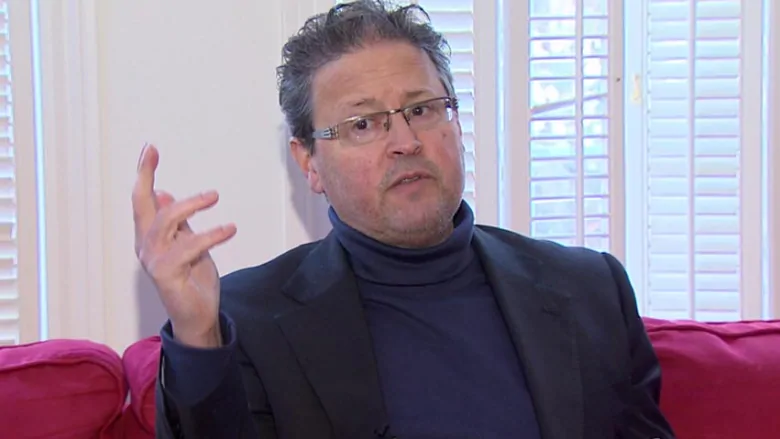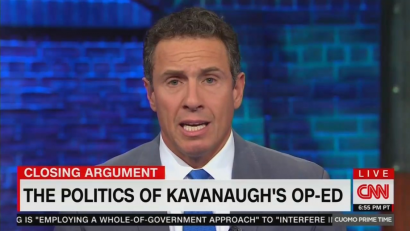
Richardo Duchesne has a problem.
Duchesne is the most prominent opponent of mass immigration and multiculturalism in the Canadian academy. His latest book, Canada in Decay: Mass Immigration, Diversity, and the Ethnocide of Euro-Canadians, argues that mainstream Canadian history textbooks, as well as many well-funded organizations and institutions, are misleading young Canadians about the basic facts of Canada’s ethnic history, facts that challenge the prevailing narrative that it has always been a multiracial nation of immigrants. Canada’s origins are not cosmopolitan; they are British and French. Until the 1970s, the great majority of immigrants were European. Duchesne criticizes prominent defenders of Canadian multiculturalism, for while they support mass immigration and minority ethnic and cultural group rights, they oppose majority ethnic and cultural group rights. This situation, Duchesne worries, will lead to the destruction of the cultural identity of European Canadians. He blames the Canadian establishment for their apolitical liberalism, which refuses to understand the world in terms of the friend-enemy distinction, as developed by Carl Schmitt in The Concept of the Political.
“What most surprised me during that difficult period was that the people who were prepared to throw me and my academic career under the bus, and who did blacklist me from academia, effectively, were not on the left, but the right.”
Duchesne’s views have made him a pariah among his colleagues. The Huffington Post recently reported that more than 100 faculty members at the University of New Brunswick have signed a letter condemning his extremism, calling his views racist, and expressing concern that his public writings and speeches might adversely affect aboriginal and non-white students who take his courses.[1] Shortly thereafter, seemingly in response to all the criticism, the scholar took an early retirement.
It is no surprise, of course, that Duchesne is a target. Academics who criticize liberalism from the right of neo-conservatism are in a precarious position, as is virtually anyone these days who demonstrates a readiness to take right-wing anti-liberalism seriously. Such persons face multiple opponents. Left of liberal academics who see mainstream conservatives as fascists cannot be expected to tolerate those to the right of the mainstream. But mainstream conservatives in academia themselves also can be vicious toward their colleagues to the right.
The effects of the animosity of the mainstream academic right to the dissident academic right are not always apparent, however. In part that is because there do not seem to be many academics on the dissident right. With respect to the culture wars, the noisiest battles in the academic arena are typically between more or less postmodern leftists and scientistic classical liberals, who position themselves as noble defenders of free speech and free inquiry against censorious arbiters of safety, sensitivity, and social justice—a neat distinction. Yet curious and significant disputes between the mainstream and the dissident academic right do happen, as I myself learned the hard way.
When I was a graduate student of political theory at the University of Toronto, I made enemies among faculty members in political science on account of my interest in and partial support for right-wing, anti-liberal political theorists and philosophers, especially Carl Schmitt, Martin Heidegger, and Alexander Dugin.
I began translating Dugin’s books from Russian into English when I was an undergraduate philosophy student at the University of British Columbia. In 2014, in my second year of graduate studies, I gave a televised interview about my research on Dugin. Although my comments were primarily expository, toward the end they were also approving, to an extent. Specifically, I stated my view that Dugin is right that there is more to being human than being liberal, and that we can learn from his approach to the criticism of liberalism, which makes room for the “blossoming complexity” of human existence.[2]
Shortly thereafter, two-thirds of my dissertation committee resigned, including my supervisor, Ronald Beiner, who wrote Dangerous Minds: Nietzsche, Heidegger, and the Return of the Far Right as a result.[3] The resignations were accompanied by accusations, innuendos, and smears. Subsequently, two replacement committee members also resigned in protest over my proximity to the dissident right. In total, four members resigned from my committee, not to mention the reactions of other faculty. The scandal was covered by the National Post, one of two major national newspapers in Canada.[4]
What most surprised me during that difficult period was that the people who were prepared to throw me and my academic career under the bus, and who did blacklist me from academia, effectively, were not on the left, but the right. Beiner is the author of books defending the enterprise of epic political philosophy, where the goal is to study thinkers who articulate grand, necessarily conflicting visions of human life, in order to assess the alternatives and look for truth.[5] Accordingly, he assured me when he first agreed to be my supervisor that he supported the serious study of counter-revolutionaries and anti-liberals like Joseph de Maistre. Why, then, was he suddenly abandoning his professed commitment and acting contrariwise by persecuting, rather than facilitating genuine inquiry into the relevant alternatives, including those seen as far to the right, like Dugin’s?
The answer probably has to do with the rise of Trump and right-wing populism around the world: Beiner’s old willingness to consider radical alternatives about the ends of human life was now faced with a political dimension that he had not taken seriously enough before, and my proximity to the dissident right triggered a troubled reaction that on his own account has forced him to reconsider his previous attitudes towards political theory.[6] Whatever the reason, he performed quite an about-face, and his turnaround offers revealing insights into the limitations of defenders of free philosophical inquiry, who tend to be on the mainstream right in the academy.
Another member who resigned, Clifford Orwin, is a self-professed member of the school of political theory that arguably represents the furthest extreme of the mainstream academic right: Straussianism. A few years after he resigned from my committee and told me that my academic future was over, but while he was still calling new members of my committee to persuade them not to work with me, he was writing hypocritical opinion pieces for The Globe and Mail about how important it is for professors to support graduate students in their independent intellectual inquiries.[7] Another committee member that resigned, Kenneth Hart Green, is also a well-known Straussian.
What these resignations showed is that mainstream academic conservatives can defend free inquiry in one breath, and in the next breath attack it if it is occurring to their right.
I had another taste of how the mainstream right can play gatekeeper to the dissident right when I submitted an account of my university ordeal to Quillette, a prominent online magazine specializing in stories of academic persecution and often featuring articles by precocious students. The story was initially approved quite eagerly. Then the National Post article about my situation came out, framed with the question whether I am a naïve philosopher or a far-right propagandist. That was all it took for my submission to be spiked.
My story about how classical liberals, Straussians, and neo-conservatives on campus censor the dissident right does not fit the usual narrative of the classical liberals as the good guys and the leftists as the problem. The hero of my story is Ruth Marshall, the sole professor who did not resign from my original committee in the midst of the storm, and the sole leftist among them. She became my supervisor and was the reason I did not leave academia. Again, her decision is hard to fit into the usual script of academic culture wars.
And yet a certain familiar script is playing out in more cases than mine. There is a small but growing number of academics paying the price for having an intellectual interest in figures like Schmitt, who are to the right of neo-conservatism. Many have emailed me to tell me their stories since I came out publicly with mine.
To be sure, not all professional attacks on the educated dissident right involve whole-faculty gang-ups, like the one against Duchesne, or concentrated efforts by a handful of influential senior professors, as in my case. Sometimes the attacks take place outside academia altogether.
Take Darren Beattie. The former Duke political theory professor was fired from his job as a speechwriter for President Trump after CNN ran a hit-piece against him for presenting a paper at the Mencken Club, “a society for the independent right,” as it calls itself. According to its website, the club was founded in order to allow for discussion of ideas on the right that were stifled by establishment conservatism. Paul Gottfried, the club’s president, has authored books on Carl Schmitt, Leo Strauss, Hegel, multiculturalism, liberalism, conservatism, and fascism, among other topics. Conferences have focused on topics such as the state of American nationalism, the future of the right, the left, and the conservative canon. The CNN piece took umbrage at the fact that these conferences have included “white nationalists” in the past, including two, John Derbyshire and Robert Weissberg, “who were both fired in 2012 from the conservative magazine National Review for espousing racist views.”
Beattie’s paper, “The Intelligentsia and the Right,” is available online and has received praise from prominent conservative dissidents. The basic thesis is that the coalition of social conservatives and religious traditionalists alongside foreign policy hawks and free market capitalists in one political movement is no longer feasible. That combination made sense during the Cold War, when the geopolitical threat of the USSR and the ideological threat of communism gave those disparate orientations a common enemy. The republican combination mirrored the mix of religious (i.e. atheistic), geopolitical, and economic elements in Marxist doctrine. The collapse of the Soviet threat, however, has forced a reconfiguration, if not a transformation, of movements on the right, in response to the transformed ideological landscape, which is characterized, Beattie argues, more by Marxian and Nietzschean elements than by end-of-history universalism, à la Fukuyama. The upshot is that there are “certain features of our situation that bode very well for the emergence of an intellectual class that is opposed to globalism in its present form.” Beattie, whose PhD dissertation was on Martin Heidegger, ends his paper suggestively with a Heideggerian reflection on the relationship between “political and cultural success,” on one hand, and “continued philosophical and spiritual darkness,” on the other.
Beattie is exceptionally smart. His dissertation on Heidegger, completed under the supervision of a preeminent Heidegger scholar, is a compelling work of original scholarship. Yet a faulty guilt-by-association logic, inexplicably and hypocritically enforced by a Trump administration that had earned itself a place in power by opposing and combating guilt-by-association scalpings, got him fired. Not by the left. Here again we see how educated right-wing dissidents are forced out of positions by mainstream conservatives, whom Beattie refers to, justly, as cognitive peasants.
In recent years, students, professors, and professionals around the world have emailed me to tell me about their professional limbo due to their interest in “the intelligentsia and the right,” or to share stories about people they know in that situation. There are doubtless many who have not come forward and many more to come.
What will become of them? Some will regroup, readjust, and reinsert themselves into the milieu that rejected them. They won’t be the same, having been mugged by reality. A few may moderate their interests. Others will probably conceal them. There will eventually be, let us hope, a “march through the institutions” by the scorned dissident right. And certainly it would be a mistake for employers to view these persons with suspicion. No nefarious intentions should be attributed to those who have paid a price for their intellectual interest in right-wing anti-liberalism. Employers should understand that dissidence signifies an interest in big picture problems and a willingness to think for oneself and to take a stand.
But what about those who are not reintegrated or who cannot force themselves to compromise on their principles? What can we expect from them as intellectuals? Even if we assume that they all land on their feet somewhere and find a job that pays the bills, what will they do with their surplus intellectual energy, this community of academics on the dissident right?
If the exile of dissident academics continues, then it is unlikely that they will remain isolated individuals, each carrying his or her own burden privately. There will be more journals like The Agonist, more publishing houses like Arktos Press (which publishes Duchesne, Schmitt, and other anti-globalist thinkers), more conferences like the Mencken Club, and new institutions and organizations, designed to capture the “brain drain” effect that comes when thoughtful persons are forced into silence. A parallel university-in-exile of sharp young dissidents will attract students past and present, dissatisfied with mainstream academia’s ideological proclivities.
The rise of alternative educational channels staffed by academics of the dissident right—a distant prospect, but one that I believe is to come—will understandably frighten and offend both the left and the establishment right. But it should inspire hope in anyone concerned with big picture philosophical and theologico-political questions, because those questions are not likely to receive their due treatment in a post-purge environment.
This new network of dissident academics will have to avoid risks of insularity and dogmatic hardening to preserve the philosophical impetus that characterizes it the dissident right at its best. It will have to find, or invent, the means of its organization and expression—especially since big tech deplatforming is already making it harder to speak from the right. But once it has succeeded in doing so, it may become attractive enough to persuade academics privately opposed to the ideological status quo to break free and join the parallel system.
It is too early to tell what forms these developments might take, and probably too premature to speculate about what ultimate effect this nascent community of thoughtful persons dissatisfied with establishment constraints on thought might exert. Yet current events in academic circles appear to vindicate Beattie’s thesis. The general theme of “the intelligentsia and the right” is pressing. And the barring of the dissident academic right from mainstream institutions may lead to a reconfiguration of the intellectual landscape, once means are in place to capture the foregone intellectual firepower and to represent responsibly the foreclosed ideological alternatives.
Then the problem that Duchesne faces, and that a growing number of good scholars and students face—namely, institutional persecution for wrong-think—will have a solution.
Notes
[1] Bailey Martens, “Over 100 University Of New Brunswick Faculty ‘Condemn’ Ricardo Duchesne’s Extremist Views,” Huffington Post, May 29, 2019. https://www.huffingtonpost.ca/entry/ricardo-duchesne-unb-faculty-condemn_ca_5ceda269e4b0793c2346ca52. The complaint is currently under review by university administrators.
[2] “Blossoming complexity” is a phrase the conservative Russian philosopher Konstantin Leontiev used to describe the peak of a civilization. Russian President Vladimir Putin invoked the phrase in a 2013 speech. Michel Eltchaninoff, Inside the Mind of Vladimir Putin (London: Hurst & Co., 2018), 72.
[3] Ronald Beiner, Dangerous Minds: Nietzsche, Heidegger, and the Return of the Far Right (Philadelphia: University of Pennsylvania Press, 2018).
[4] https://nationalpost.com/news/toronto/university-of-toronto-controversially-awards-doctorate-translator-of-sanctioned-russian-neo-fascist
[5] Ronald Beiner, Political Philosophy: What It Is and Why It Matters (New York: Cambridge University Press, 2014).
[6] Center For Academic and Intellect Freedom, “The Public Liberty Podcast, Episode 2: The Alt-Right, Far Left and the Jews: Ronald Beiner’s Dangerous Mind”.
[7] Clifford Orwin, “Exposure to different points of view is at the core of higher learning,” The Globe and Mail, September 4, 2018.

